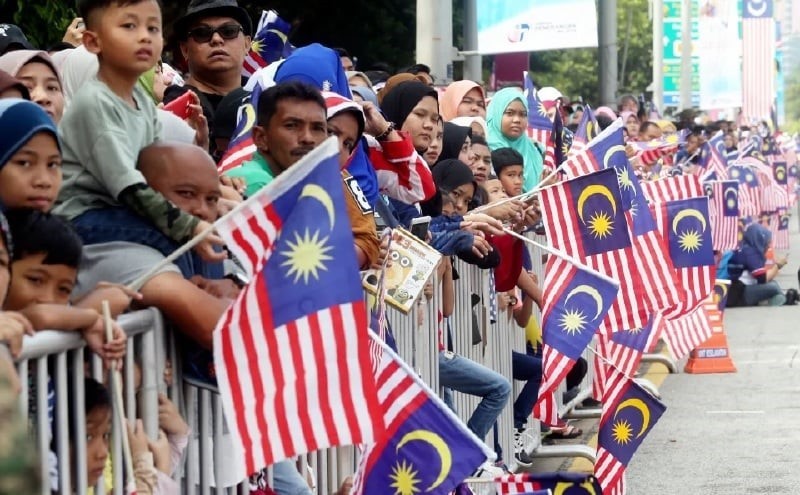
Image credit: Berita Harian
It is timely to reflect on a recently introduced term, Malaysia Madani, and its policy naratives.
The term may not be totally new as Prime Minister Datuk Seri Anwar Ibrahim used it in speeches in the 1990s. However, the phrase used then was masyarakat madani.
Malaysia Madani emphasises sustainability, prosperity, innovation, respect, trust and compassion. These are summarised in the words "humane economy".
It goes without saying the economic content of Malaysia Madani is to achieve sustainable and inclusive growth, with good governance and a clean society. The high-profile cases of corruption and abuse of power must have inspired the leader to ensure that economic growth is achieved without compromising on ethics and integrity.
It has been quite some time since we talked about long-term development policies such as the New Economic Policy (1971-1990) and Vision 2020 (1991-2020).
A new one is timely. Malaysia Madani fits this policy space.
Malaysia Madani is a combination of long-term development concerns and the need to address inequity in society.
A development strategy based on these could ensure the eradication of causes of social conflicts and make economic growth more equitable and durable.
Certainly, inequality will remain a concern. The major cause may not be ethnic in nature any more but sectoral and spatial.
However, income as a source of inequality will remain a concern. While wages make up about 45 per cent of gross national income in Singapore and South Korea, and 55 per cent in Europe,
the share here is about 35 per cent.
The labour market and the regulators have to create an ecosystem that allows wages to rise and account for a more significant share of total income. For this to happen, worker productivity has to rise significantly through quality investments and creation of high-skilled jobs.
In fact, Malaysia Madani has to emphasise the importance of productivity in all sectors and among all factors of production.
Malaysia Madani has to move forward in several spheres, one of which is social and political governance. Some of our democratic institutions can be improved by getting Parliament to assume a greater role in overseeing their functions through select committees.
In South Korea, even the budgetary allocation for the well-known Korea Development Institute is decided by Parliament, showing the importance of policy-related planning and research to the nation.
Imagine if the annual allocations for policy-related research bodies such as MIER and ISIS are decided by Parliament. The budgets for them would surely be more than enough.
At this juncture, more analyses of the role of Malaysia Madani need to be undertaken at sectoral and functional levels through dialogues and seminars.
These would allow greater understanding among civil servants and corporate executives of their expected contribution to the attainment of the objectives of Malaysia Madani.
The philosophy of Malaysia Madani can be accepted as it balances the need for sustainable and equitable economic development, which is in line with the Rukun Negara, and the importance of achieving it in the context of good governance and zero corruption.
This is what a civil society is about.
Hopefully, senior civil servants and universities will accept my suggestion to have dialogues and brainstorming sessions, to flesh out Malaysia Madani in operational terms.
The call for Malaysia Madani by our prime minister is but the beginning; it is up to us to make it work.
Source: https://www.nst.com.my/opinion/columnists/2023/04/902932/its-time-flesh-out-malaysia-madani-operational-terms?utm_source=nst&utm_medium=mostpoplatest

